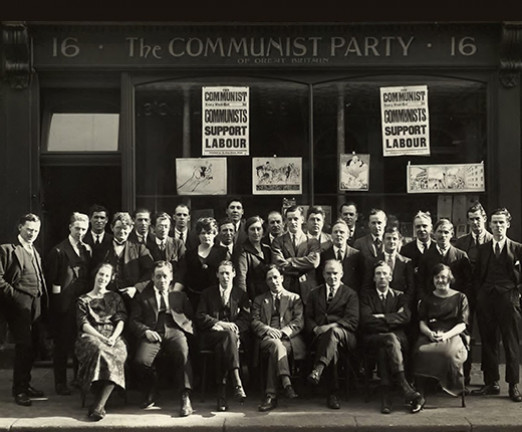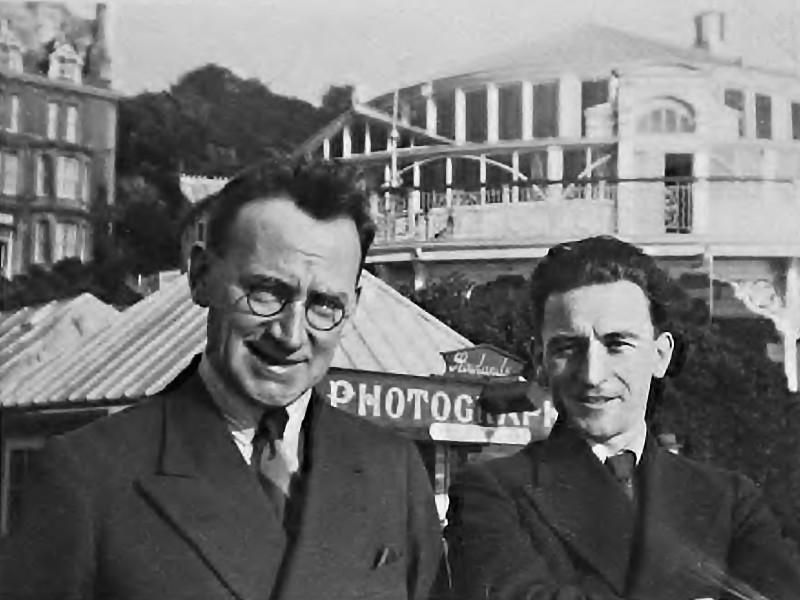
Debate and Division on the British Left, 1917–1964

The J.T. and Molly Murphy Papers
The [CPGB] archives contain by far the most important collection of personal papers relating to British communism.University of Manchester
Access the full collection
Access the full archive of Debate and Division on the British Left, 1917–1964.
Institutional Free Trial
Start your free trialRegister for a free 30-day trial of Debate and Division on the British Left, 1917–1964, for your institution.
Institutional Sales
Visit Sales PagesellFor more information on institutional access, visit our sales page.
Already have a license? Sign in.
Examine the origins of "revisionism" and its impact on the worldwide communist movement

John Thomas (J.T.) Murphy and Molly Murphy (née Morris) were a married couple who were prominent members of the Communist Party of Great Britain (CPGB) during its formative years. J.T. was expelled from the party in 1932, while Molly resigned shortly thereafter.
This collection contains J.T.’s personal and political papers, which cover a wide range of subjects, from his imprisonment in 1925 and campaign to become a Member of Parliament to his travels in post-revolutionary Russia and disagreements with the CPGB leadership. Documents detailing Molly's time as a nurse on the frontlines of the Spanish Civil War are also included. Together, these materials provide an invaluable insight into the internal debates that plagued the British and European left during the 1920s and 1930s.
The collection is accompanied by three contextual essays written by Professor Kevin Morgan, a senior academic at the University of Manchester.
Contents

Highlights

Licensed to access Soviet communist life in photographs, 1917–1927.
Insights
- J.T. was a leading member of one of the CPGB's precursory organisations, the Socialist Labour Party. He took part in unity discussions between various British revolutionary groups which led to the formation of the CPGB in 1920.
- J.T. held several important posts in the party throughout the 1920s. From 1926 to 1928, he even acted as its representative in the Communist International (Comintern), which was based in Moscow.
- This provided J.T. and his wife Molly with unprecedented access to everyday Soviet life, which they recorded through photographs.
- Molly joined the CPGB having become disillusioned by the bourgeois sensibilities of the suffragette movement. She met J.T. through the party and stuck by him when its leaders voted to expel him. Much of the material relating to Molly centres on her experience as a volunteer nurse on the Republican side of the Spanish Civil War.
- J.T.'s expulsion resulted from a disagreement over the Soviet Union's trade credits with Britain. Although a seemingly obscure and innocuous issue, J.T. made it clear that he did not want to subordinate himself to a policy he did not "consciously accept." This schism highlights a wider tension within the party regarding its willingness to accept every Soviet action as a sacred diktat. That said, J.T. himself remained "a loyal follower of Stalin, whose hagiography he later published."
- After parting ways with the CPGB, J.T. dedicated a great deal of his time to writing. He penned a number of books and articles, including some that were biographical in nature and others that were concerned with Marxist philosophy.
Unlock Historical Research for Your Institution
Provide your students and researchers with direct access to unique primary sources.
Related Media


The Departments of the Communist Party of Great Britain: A Detailed Guide Contextual Essays










